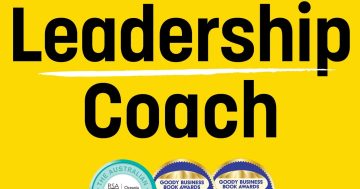Travis Bradberry* says people are setting themselves up for failure unless the promises they’ve made to themselves to do better in 2022 are guided by emotional intelligence.
 For many of us, 2022 began with a promise: To better manage our schedule; treat people the way I ought to; keep things in perspective when chaos is at hand.
For many of us, 2022 began with a promise: To better manage our schedule; treat people the way I ought to; keep things in perspective when chaos is at hand.
The sad truth is that nearly 80 per cent of us will have fallen off the resolution bandwagon by now.
By this time next year, a mere five per cent will have succeeded in reaching their goals.
There are two reasons for this.
The first is that we bite off more than we can chew. When we try to develop too many new skills at once, they become competing priorities.
The second reason is that our emotions have a nasty habit of hijacking our behaviour.
Without a strong ability to recognise and manage our emotions as they occur, old habits are sure to die hard.
The good news is that you can address both problems and make the changes you desire by resolving to develop a single skill — emotional intelligence (EQ).
Piles of research over the past two decades have shown that emotional intelligence is likely the single most powerful success factor yet discovered.
As you improve your emotional intelligence, you improve your ability to understand and control the primary motivations for your behaviour, which reaps dividends in everything you do every day.
Emotional intelligence is made up of four core skills that pair up under two primary competencies: Personal competence and social competence.
Personal competence comprises your self-awareness and self-management skills, which focus more on you individually than on your interactions with other people.
It is your ability to stay aware of your emotions and manage your behaviour and tendencies.
Self-awareness is your ability to accurately perceive your emotions and stay aware of them as they happen.
Self-management is your ability to use awareness of your emotions to stay flexible and positively direct your behaviour.
Social competence is made up of your social awareness and relationship management skills.
It is your ability to understand other people’s moods, behaviour, and motives in order to respond effectively and improve the quality of your relationships.
Social awareness is your ability to accurately pick up on emotions in other people and understand what is really going on.
Relationship management is your ability to use awareness of your emotions and the others’ emotions to manage interactions successfully.
While working on your emotional intelligence will improve a lot of different skills, there are five in particular that people tend to set goals around when the year changes.
Time management
In this age of abundance, time is the one thing nobody has enough of.
Few people recognise how time management depends upon the emotional intelligence skills of self-management and relationship management.
Creating a good schedule is a very rational thing, but sticking to that schedule is decidedly emotional.
Many of us start out every day with the best intentions to manage our time wisely, but then we receive a complicated email from a co-worker, or a consuming phone call from a friend, and we get side-tracked.
We spend the rest of the day trying to put out somebody else’s fire, or working to resolve issues that weren’t there in the morning.
Sticking to a schedule requires self-management.
When the needs of others try to impede upon your plans, it takes effective relationship management to finesse the relationship while ensuring that your priorities are still addressed.
Embracing change
Show me somebody who claims to love change and I’ll show you a well-intentioned liar.
Change is uncomfortable for everyone, and for many it makes their skin crawl.
Those who apply well-honed self-awareness and self-management skills tolerate change much more successfully than others.
Self-awareness enables you to adjust comfortably to change because it gives you the perspective needed to realise when change is coming.
Self-management keeps you cool in the moment — often with a reminder that even the most stable, trusted facets of your life are not completely under your control.
Assertiveness
Emotional intelligence is commonly mistaken as a synonym for ‘nice’.
In fact, the most emotionally intelligent response is often one where you openly and directly express yourself.
Emotional intelligence doesn’t allow lashing out, or making yourself into someone else’s doormat.
To be assertive, you have to know what you’re feeling, read the other party accurately, and express yourself in a way that garners the best result.
Making great decisions
It has taken the world far too long to wake up to the fact that emotions simply cannot be ignored when making decisions.
Neuroscience shows us that sometimes the most rational thing you can do is trust your emotions when making a decision.
In order to make this work, you have to be aware of the emotions you’re feeling, know why you’re having them, and see how they factor into the situation at hand.
Giving outstanding presentations
Few things strike primal fear in people like standing under the spotlight in a room full of people.
Even the most eloquent among us can be reduced to spewing verbal garbage once the sheer anxiety of public speaking takes hold.
That’s why a top presenter’s most inspiring presentation is often the one he delivers to himself.
A bit of positive self-talk — reminding himself of all the times he has succeeded and how qualified he is to speak on the topic — enables the effective speaker to use his performance anxiety to sharpen his focus and make him more articulate.
If you think that’s silly, then you probably haven’t tried it.
Emotional intelligence doesn’t just make you aware of your emotions; it equips you with strategies for keeping them from holding you back.
*Travis Bradberry is the award-winning co-author of the bestselling book, Emotional Intelligence 2.0, and the co-founder of TalentSmart. He can be contacted at talentsmart.com.
This article first appeared at talentsmart.com.











